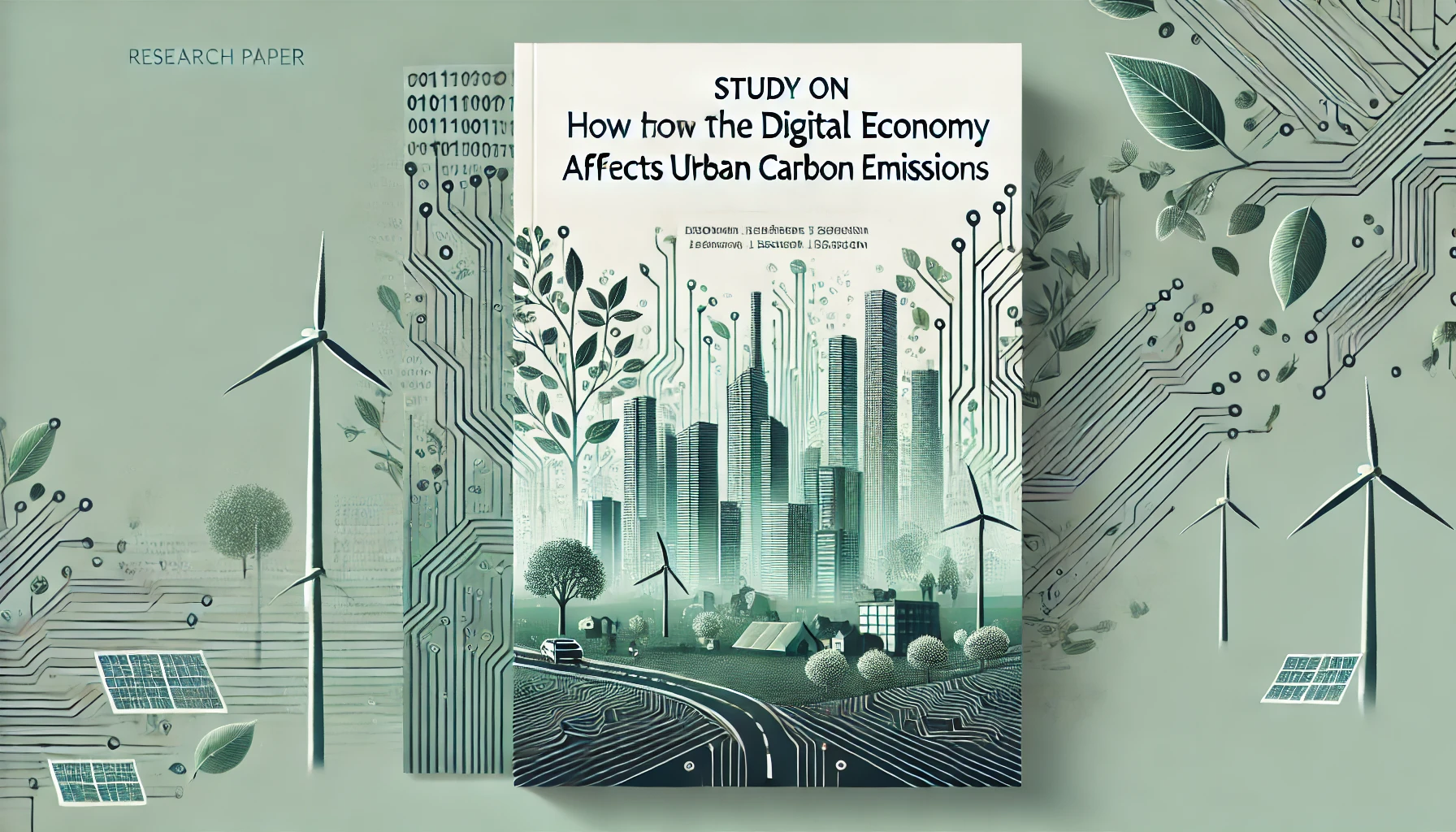Journal | RSER | Study on how the digital economy affects urban carbon emissions

封面来源:ChatGPT-4 DALL·E
Abstract: The digital economy is crucial in advancing an economically sustainable and low-carbon future and plays a key role in achieving carbon neutrality and carbon peaking. We measured the digital economy development level of each prefecture-level city in China form 2011to 2019, then investigated the impact of on carbon emissions and its mechanism using the panel fixed effects model and the spatial Durbin model. Our results indicated that: Firstly, an inverted U-shaped relationship had been observed between the impact of digital economy on carbon emissions, which increased and then decreased, and this result was again verified by a threshold regression. Secondly, there was a nonlinear relationship between digital economy and green innovation and the digital economy had an indirect effect on carbon emissions through green innovation. Thirdly, the influence of digital economy on carbon emissions in the area followed an inverted U-shaped relationship that stimulated initially and then restrained, with spatial spillover effects. Fourth, the heterogeneity analysis found that digital economy had a greater emission reduction effect in areas east of the “Hu Huanyong line” and in in cities without resources. The conclusions provide new highlights on the relationship between digital economy and carbon emissions, along with policy recommendations for attaining the objectives of peak carbon and carbon-neutral strategies.
摘要:数字经济在促进经济可持续发展和低碳未来中至关重要,并在实现碳中和和碳达峰目标中发挥了关键作用。作者测算了2011年至2019年期间中国各地级市的数字经济发展水平,采用面板固定效应模型和空间杜宾模型,研究了数字经济对碳排放的影响及其作用机制。研究结果表明:首先,数字经济对碳排放的影响呈现倒U型关系,即碳排放先增加后减少,这一结果通过门槛回归模型再次得到验证。其次,数字经济与绿色创新之间存在非线性关系,数字经济通过绿色创新对碳排放产生了间接影响。第三,数字经济对该地区碳排放的影响呈现先刺激后抑制的倒U型关系,并具有空间溢出效应。第四,异质性分析发现,数字经济在“胡焕庸线”以东地区和无资源型城市的减排效果更为显著。研究结论为理解数字经济与碳排放的关系提供了新的亮点,并为实现碳达峰和碳中和战略目标提出了政策建议。
引用:Ma, Z., Xiao, H., Li, J., Chen, H., & Chen, W. (2025). Study on how the digital economy affects urban carbon emissions. Renewable and Sustainable Energy Reviews, 207, 114910.



